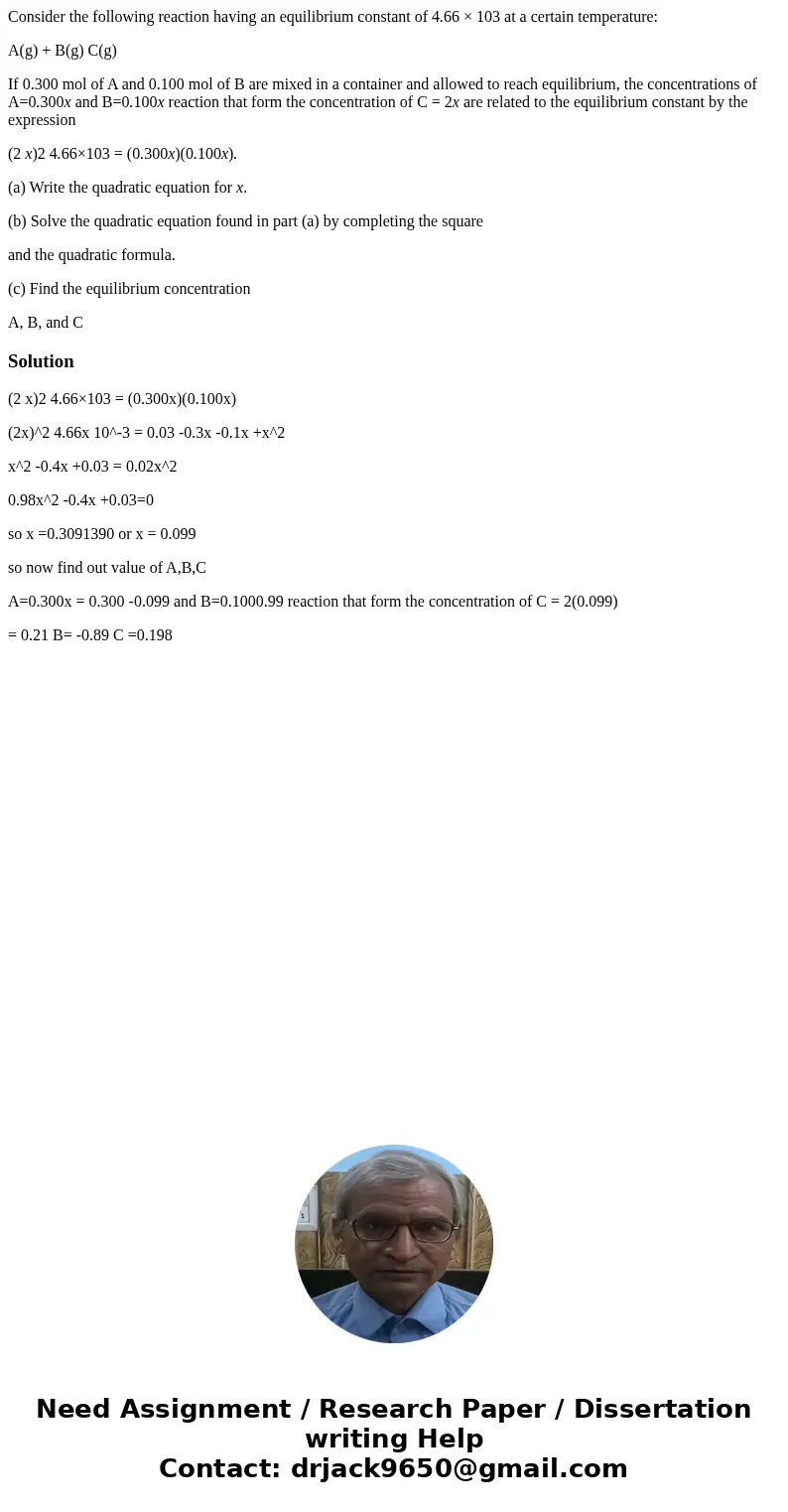Consider the following reaction having an equilibrium consta
Consider the following reaction having an equilibrium constant of 4.66 × 103 at a certain temperature:
A(g) + B(g) C(g)
If 0.300 mol of A and 0.100 mol of B are mixed in a container and allowed to reach equilibrium, the concentrations of A=0.300x and B=0.100x reaction that form the concentration of C = 2x are related to the equilibrium constant by the expression
(2 x)2 4.66×103 = (0.300x)(0.100x).
(a) Write the quadratic equation for x.
(b) Solve the quadratic equation found in part (a) by completing the square
and the quadratic formula.
(c) Find the equilibrium concentration
A, B, and C
Solution
(2 x)2 4.66×103 = (0.300x)(0.100x)
(2x)^2 4.66x 10^-3 = 0.03 -0.3x -0.1x +x^2
x^2 -0.4x +0.03 = 0.02x^2
0.98x^2 -0.4x +0.03=0
so x =0.3091390 or x = 0.099
so now find out value of A,B,C
A=0.300x = 0.300 -0.099 and B=0.1000.99 reaction that form the concentration of C = 2(0.099)
= 0.21 B= -0.89 C =0.198

 Homework Sourse
Homework Sourse